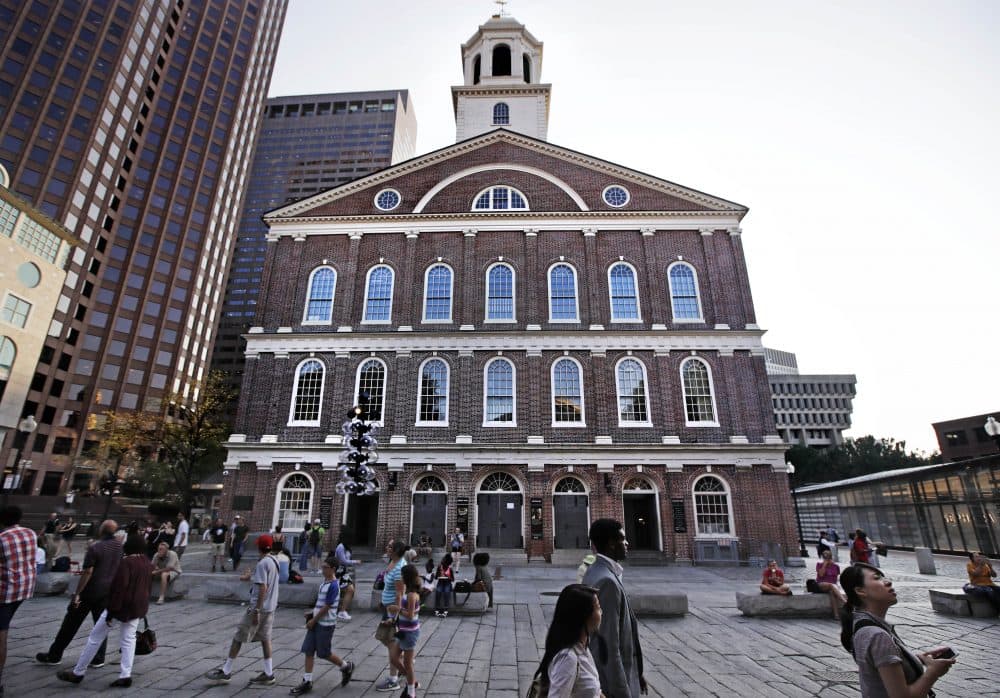Advertisement
How Should Boston Address Its History Of Slavery?

There's a new debate emerging over the proposed memorial to slavery at Faneuil Hall.
The idea for the memorial emerged as many activists called for Faneuil Hall to be renamed, because of Peter Faneuil's history as a slave trader.
But last week the artist who proposed the memorial — Steve Locke — said he was withdrawing his project.
Guests
Jerome Campbell, WBUR reporting fellow. He tweets @JeromeRCampbell.
Steve Locke, former artist-in-residence for the city of Boston. He tweets @steve_locke.
Marty Blatt, history professor and director of the public history program at Northeastern University.
David Harris, managing director of the Charles Hamilton Houston Institute for Race & Justice at Harvard Law School.
This segment aired on July 22, 2019.



